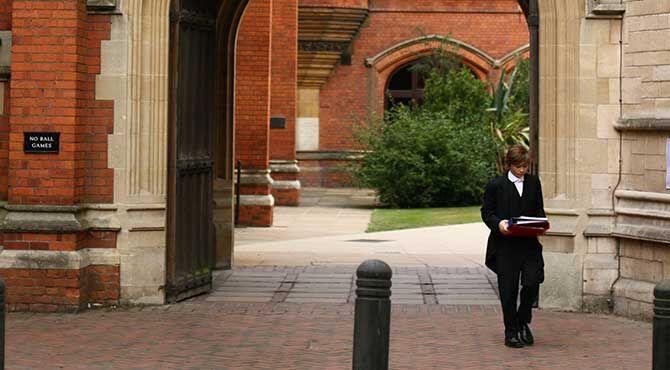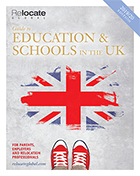Labour votes to abolish private schools
Labour has revealed an ambitious – and contentious – plan to overhaul the UK education system and scrap private schools. Georgina Probert finds out more.

Labour plans to 'make the education system fairer'
Speaking at the Labour Party Conference, Angela Rayner, the shadow education secretary, explained that the party would “work on making the whole education system fairer through the integration of private schools... our very first Budget will immediately close the tax loopholes used by elite private schools, and use that money to improve the lives of all children.“As the next Chancellor, John McDonnell will re-make our economy for social justice, by taxing privilege, redistributing wealth and re-investing in public services. So too in education. By creating a new, universal basic service. This is the heart of the National Education Service – the fundamental belief that education is a right for all, not just a privileged few.”In response to the motion, critics have questioned the human-rights and legal implications that would arise from these measures, as well as the feasibility of the state sector having to absorb in excess of 550,000 pupils.Related articles
- State schools in England to benefit from Government cash injection
- Families matter: how to choose the right school
- Chinese applicants to UK universities hit new high
How will this affect global mobility professionals?
For families considering a domestic move within the UK, the ramifications of these measures would include less choice for parents if private schools were abolished, due to a smaller pool of schools to choose from; larger classrooms in state schools to accommodate the thousands of private school pupils who would be displaced; and a potential drop in the quality of education as schools acclimatise to the new government's plans.A drop in education standards could put off global mobility professionals who are thinking about coming to the UK on assignment and who might find that international schools based in the UK have had to cut resources as their charitable status has been removed.Julie Robinson, chief executive of the Independent Schools Council said, “Parents across the country have every right to be worried about the decision by Labour Party conference to support a motion to abolish independent schools. The move is an attack on the rights and freedoms of parents to make choices over the education of their children."Abolition would represent an act of national self-harm. Tearing down excellent schools does not improve our education system. The repercussions would be irreversible and far-reaching, damaging educational opportunities and limiting life chances. Moreover, Labour’s plan would breach the European Convention on Human Rights on the right to choose education.”Relocate's Guide to Education & Schools in the UK 2019/20 edition is out now!The Guide is packed with expert tips for those who are relocating and the professionals who support them. Read articles from the guide below or access your digital copy here.
According to Ms Robinson, recent polling data has revealed more than a third of British adults believe increased funding for state schools is the key priority to improving social mobility, with just 6% supporting abolition of independent schools.She added, "Every family with school-aged children would be affected if independent schools were abolished. State school class sizes would swell further, resources would be stretched and the financial strain on already-stretched budgets would be enormous. At present, independent schools contribute nearly £14 billion to UK GDP each year and save the taxpayer £3.5 billion per year through the education of children and young people at no cost to the taxpayer.”
Director of the Scottish Council for Independent Schools responds to Labour's plans
John Edward, Director of Scottish Council for Independent Schools (SCIS), responded to the recent Labour Party Conference vote on abolishing independent schools, by asking policymakers to redirect the current debate and follow Scotland's lead.Edwards said, "Even a cursory glance at the sector in Scotland, and developments since devolution would show anyone in the UK how different this debate can be, and how much can change without abolishing the sector."In 2005, the Scottish Parliament passed unanimously what remains a unique, formal test of public benefit for independent schools. Designed by a Labour-Lib Democrat coalition government and established by law, the test has seen means-tested fee assistance become the default for schools, with the overall amount more than tripling to over £30 million per year.
Widening of access to public schools
"At the same time, shared academic and sports resources, careers events, facilities, music and arts provision have all been audited to establish the place of independent schools in their communities. All of this widening of access has happened while schools continue to encourage high attainment and positive leaver destinations from pupils of all interests and abilities."Rather than discussing the wholescale dismantling of a historic and complementary system, described by Scottish ministers as part of the 'rich tapestry of Scottish education', policymakers could look at what works, what is achievable, and what makes a genuine difference to young people's lives."For the latest education news, articles and practical advice, see our Education & Schools section.
The Relocate Guide to Education & Schools in the UK is a helpful tool for any family trying to negotiate the UK school system. It covers State, independent and international schools and helps you explore your options or to aid an employee who is trying to determine theirs. You can access it here.Don't miss out on advertising in our Guide to International Education & Schools 2019/20 edition – out in September! For volume options, co-branded editions, digital or online licence agreements and advertising opportunities, call the office on +44 (0)1892 891334 or email education@relocatemagazine.com©2025 Re:locate magazine, published by Profile Locations, Spray Hill, Hastings Road, Lamberhurst, Kent TN3 8JB. All rights reserved. This publication (or any part thereof) may not be reproduced in any form without the prior written permission of Profile Locations. Profile Locations accepts no liability for the accuracy of the contents or any opinions expressed herein.







































